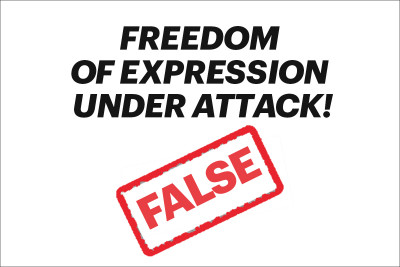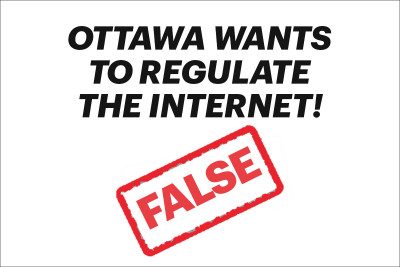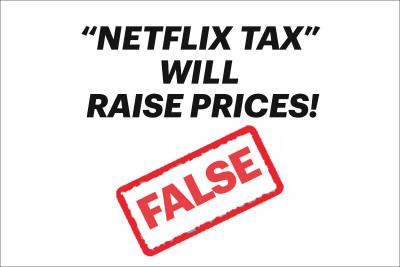Yale Report: The sky is NOT falling down
Forget the growing hysteria about BTLR. Here are the facts.

Last week, the Broadcasting and Telecommunications Legislative Review (aka BTLR), an expert panel tasked with modernizing Canada’s communications laws, issued its final report. Reading some of the reactions, one would be forgiven for thinking that the end is nigh. Breathe easy: the hysteria is unwarranted. Here’s a look at some of the myths that have been floated in recent days, alongside reality.
Reality: The CRTC currently licenses every Canadian broadcaster. Nobody has suggested that the freedom of CTV News, for example, to make its own editorial decisions is compromised or censored as a result. Actually, the main censors of public speech are platforms like Facebook that decide, without transparency or accountability, what content we see, and more importantly, what we don’t see.
Further, the idea that every Tom, Dick and Harry with a blog would need a license to publish is pure fabrication. The report clearly states that the rules would only apply to companies with "significant revenue" in Canada, and that CRTC would have "broad power to exempt" wherever necessary.
The biggest threat to freedom of the free press is its slow-motion extinction, caused by the flight of ad dollars to platforms like Facebook. Facebook is Canada’s #1 news source though they don’t employ a single journalist, and they expressly allow politicians to lie in paid advertising: the exact opposite of what a responsible press would do.

Reality: The internet isn’t free. It hasn’t been for years. Today's internet is controlled by a handful of American monopolies, with a few more Chinese monopolies coming in. Some small players can manage to break through organically but on ad-driven platforms like Facebook, reach is bought, not earned. They may portray themselves as open, public fora, but they’re not. The platforms’ main role is to censor, curate, and filter content. They alone decide what we see online, and more importantly, they never disclose what they’ve filtered out of your feed.
Canadian newspapers or TV networks face serious legal consequences for publishing hate or lies. They even fund standards bodies you can complain to. But when Facebook broadcasts the Christchurch massacre, or when Instagram recommends young girls to convicted pedophiles, the company faces no consequences. That makes no sense. Fraud is fraud, online or offline. Child porn is child porn, in print or on screen. And publishing is publishing, no matter how strenuously Facebook says it isn’t. Our laws and rules should apply to all publishers equally.

Reality: This accusation is wrong on multiple levels. First, nobody has ever proposed a Netflix tax. Stephen Harper made it up in 2015, so he could oppose it. For purely political reasons, Mr. Trudeau jumped on the bandwagon shortly after.
Still, the so-called Netflix Tax isn’t the targeted punishment it sounds like: it’s just sales tax. Canadian companies collect sales taxes and send it to the government. California internet giants pocket it.
Most countries have laws that treat domestic firms favourably. In Canada, we do the opposite. We force our companies to collect taxes, but we let their main competitors operate tax free. In 2018, this crazy policy let Netflix pocket $208 million in sales taxes. That’s enough to finance a full season of The Crown. It’s also more than CBC spends on all English-language drama.
And for those who care more about pricing than basic fairness, consider this: since Harper came out against the fictional Netflix Tax in 2015, Netflix has raised its prices three times. Meanwhile, the number of Canadian subscribers continues to grow. Joke’s on us.
That any of this is even remotely controversial shows how resigned we've become to the power of Silicon Valley. If we don’t support our own national media at this critical juncture, it’s not just the media that will be lost: it’s the nation.
This article was originally published by The Hill Times on February 5, 2020.

